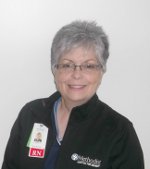 Never underestimate the value of daily huddles. These knowledge sharing meetings offer a powerful way for staff to stay ahead of upcoming procedures and ward off needless delays and cancellations. By providing a snapshot of upcoming surgeries, any special needs and cases of the day, office managers, OR nurses, anesthesiologists and surgeons have the necessary insight to ensure the best possible outcomes for their patients.
Never underestimate the value of daily huddles. These knowledge sharing meetings offer a powerful way for staff to stay ahead of upcoming procedures and ward off needless delays and cancellations. By providing a snapshot of upcoming surgeries, any special needs and cases of the day, office managers, OR nurses, anesthesiologists and surgeons have the necessary insight to ensure the best possible outcomes for their patients. Thanks to advances in technology, the chances of things being missed during these meetings has greatly diminished. The ability to easily pull daily, weekly and monthly reports from our online pre-admission solution has proven very valuable to our patient safety efforts. Schedule overviews of procedures occurring 48 hours out are printed and reviewed during bed huddle meetings with staff. Medical conditions such as cardiac, stroke and methicillin-resistant staphylococcus aureus (MRSA) are flagged.
Warning lists can be customized using the One Medical Passport system to extend beyond high risk incidents to ensure all surgical needs are met. For example, custom alerts are also developed for patients over six feet tall. Because the hospital's beds only accommodate someone who is six-foot-two-inches, advance knowledge of a patient's height allows the hospital to order extra-long beds which are not kept at the facility. Having the necessary information in advance of a procedure for daily huddles has increased patient safety and helped reduce costly surgical delays resulting from day-of surgery surprises.


